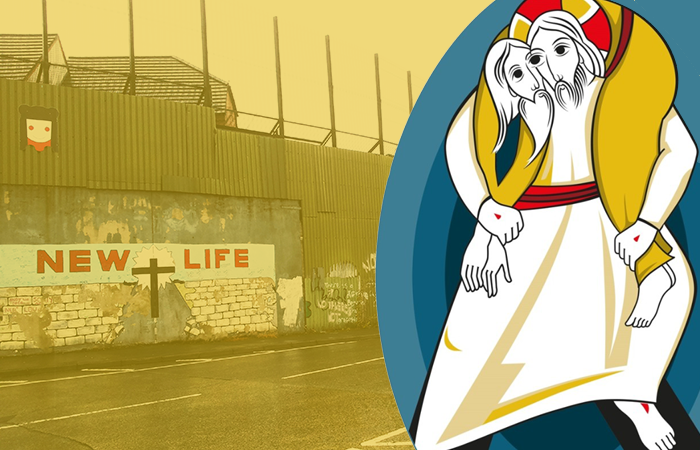
Mercy is a difficult journey
It almost seems like a contradiction but it is true that in the Year of Mercy declared by Pope Francis the desire for walls has seemed stronger. Hungary just held a referendum to justify the construction of a wall. The necessary percentage was not reached but the majority of those who went to vote were in favor of the construction of a wall. The Hungarian and Bulgarian-Turkey walls may not be the last. There is a real wall in Calais. Britain reached an agreement with France to fund, with 15 million euro, a fence to make the port more difficult to access by migrants intending to reach England by sea. Effectively, England has extended, for security reasons, its border to France. The walls are growing quickly, but wounds do not heal easily over time.
In Belfast, signs of separation
I recently had the opportunity to go to Belfast (Northern Ireland) and I felt that it was difficult to overcome divisions. During the 30+ years of conflict in Northern Ireland –– locally called “The Troubles” –– there was fought a sort of low intensity war between two distinct entities: the Irish Catholics primarily in the northern counties and the Protestants who were generally faithful to the British crown as loyalists or unionists. In Belfast, 15 years after the signing of the Good Friday agreements (April 10, 1998), putting an end to the 30 years of troubles between unionist Protestants and Catholic republicans, the “peace walls” still stand. None of the barriers that divide the two communities has been destroyed. The Belfast Interface Project, an association that works for rapprochement between Catholics and Protestants, has surveyed 99 walls, a tangible sign that reconciliation is still far away. People feel safer away from the barriers, which for decades protected them from thrown stones, bottles and firecrackers from the opposing side. Only 14 percent of the inhabitants of the crisis districts are open to the removal of the peace walls.
The wall guarantees safety
“The wall must remain, thanks to it we feel more relaxed, especially during July parades,” so say the Catholic inhabitants of Duncairn Avenue, which is on the route of the procession that celebrates the victory, back on July 12, 1690, of the Protestant King William III of Orange over the Catholic James II. Decades of violence, resulting in 3,500 dead in a province of 1.8 million people, have left deep scars. Research done by the Queen’s University of Belfast in 12 districts of the city revealed that 68 percent of men between 18-25 years old have never had a conversation with peers from the other community. The school system provides only 5% of mixed classes. Even sports clubs are divided by religious affiliation and the younger generations are in separate universes as they enter the working world. A new way of reconciliation could perhaps be offered through tourism. “Political tours” are guided tours of the murals of unionists on Shankill Road and the republicans on Falls Road. The troubles of the dark period are revisited by throngs of vacationers. Sad stories become a source of curiosity and business.


